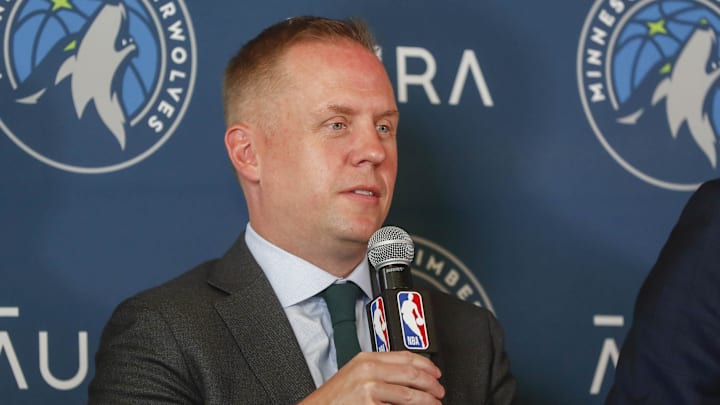This offseason, we saw the Minnesota Timberwolves avoid the second apron by not re-signing Nickeil Alexander-Walker or finding a replacement for him on the open market. On a recent episode of The Dane Moore Podcast, Moore and his guest, Kyle Theige, discussed how avoiding the second apron was more of a management than an ownership focus.
"Something good to remind with this new CBA, is that sometimes or oftentimes you're going to see teams cut payroll, Theige said. And in the past, or the way you and I were raised, when a pro sports team cuts payroll, they're deemed as being cheap. In basketball now, with the new CBA, cutting payroll isn't because your owners are cheap. I harken back to Tim Connelly's exit interview. I think he's the number one person in the organization who doesn't want to go into the second apron again."
Theige brings up an excellent point. In other sports and (basketball historically), avoiding a high payroll is more of an ownership focus. However, now with the second apron, high team payrolls can result in penalties that hurt the franchise's roster flexibility.
Make no mistake, the Wolves' decision to dodge the second apron wasn't about ownership or a lack of belief in this core; it was about a conscious effort to have as much future flexibility as possible. The Wolves also prioritized continuity and developing their young players, including Rob Dillingham and Terrence Shannon Jr., this summer. They leaned into continuity by re-signing Julius Randle and Naz Reid while empowering their young players by not making any major signings.
The second apron restrictions make roster building more challenging
As a refresher, second apron teams are unable to send out cash in trades, aggregate contracts in trades, or be a part of sign-and-trades. Furthermore, the team's picks are frozen seven years out in trades, and if a team is over the second apron for three of five seasons, their next first-round pick will automatically be moved to the end of the first round. For a Wolves team that was in the second apron last year, avoiding it again is highly logical.
Overall, the apron restrictions shift luxury tax concerns from ownership to management. By all accounts, new owners Alex Rodriguez and Marc Lore are willing to spend big-time money, but it's just not prudent to do so with these restrictions.
Tim Connelly and Matt Lloyd are wise to avoid the second apron despite the Wolves having title aspirations. Notably, the Wolves are far from the only team to dodge the second apron this summer. In fact, the Cleveland Cavaliers are the lone second apron team heading into the season, and it wouldn't shock anyone if they go below the second apron during the season.
The Wolves remain one of the six first apron teams, which still comes with some restrictions, albeit less punitive ones. Having three young players getting bigger roles could help the Wolves navigate the challenges of the second apron. Ultimately, building a title-winning team with these cap restrictions is a tough challenge, but luckily, Anthony Edwards is still just 24, and the Wolves have one of the best front offices in the league.
